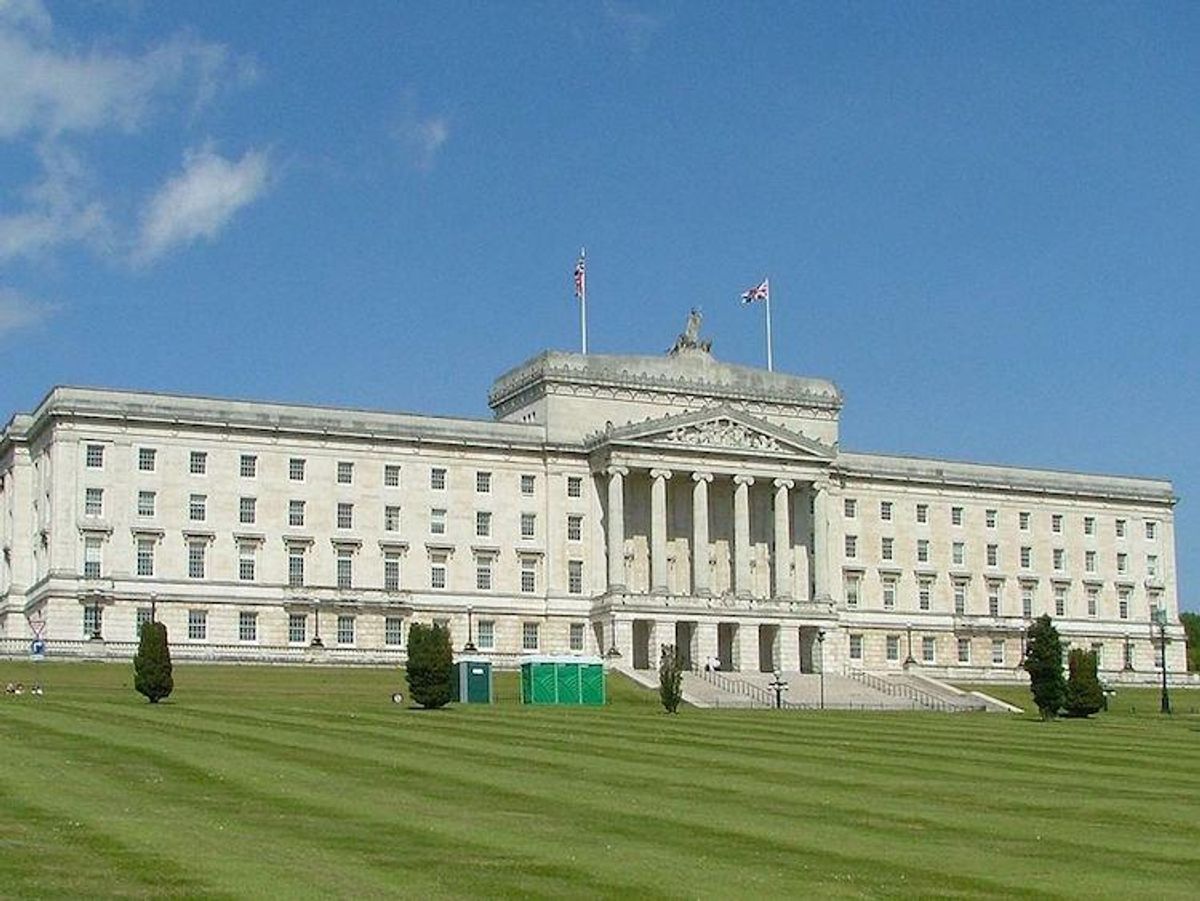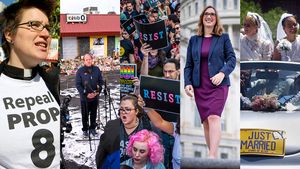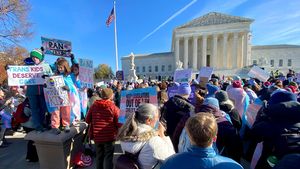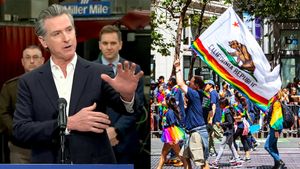Photo via Wikimedia Commons
This week, the Parliament of Northern Ireland voted against a motion to legalize marriage equality by a margin of only two votes, with the final tally coming in at 47 in favor and 49 against. This is the fourth time that Northern Ireland has voted against extending marriage rights to LGBT people, leaving it isolated within the United Kingdom. Last year, same-sex marriage went into effect in England and Wales at the end of March, and in Scotland at the end of December. The Republic of Ireland will hold a referendum on marriage equality on May 22, which polls predict will be successful. That would leave the six counties of Northern Ireland alone in their persistent exclusion of LGBT people from the institution.
Despite being one of the four nations that makes up the United Kingdom--together, England, Scotland, Wales and Northern Ireland make up a single country--Northern Ireland treats same-sex marriages from other jurisdictions, even from within the United Kingdom, as civil partnerships.
The proposed bill was put forth by Sinn Fein, a republican party active in the Republic of Ireland, where all major political parties are in support of the upcoming referendum. In the England and Wales, marriage equality was pushed through by the Conservative government and had the support of all major parties, with Labor carrying the vote. Similarly, it was legalized in Scotland as a result of a push by the Scottish National Party government, and was supported by all parties. The actions of Northern Ireland's politicans, therefore, make it an anomoly within the British Isles.
Amnesty International's Northern Ireland Program Director, Patrick Corrigan, had this to say:
"By their words and actions, too many of Northern Ireland's politicians are making gay people second-class citizens in their own country."
[H/T Pink News]


















































































Sexy MAGA: Viral post saying Republicans 'have two daddies now' gets a rise from the right